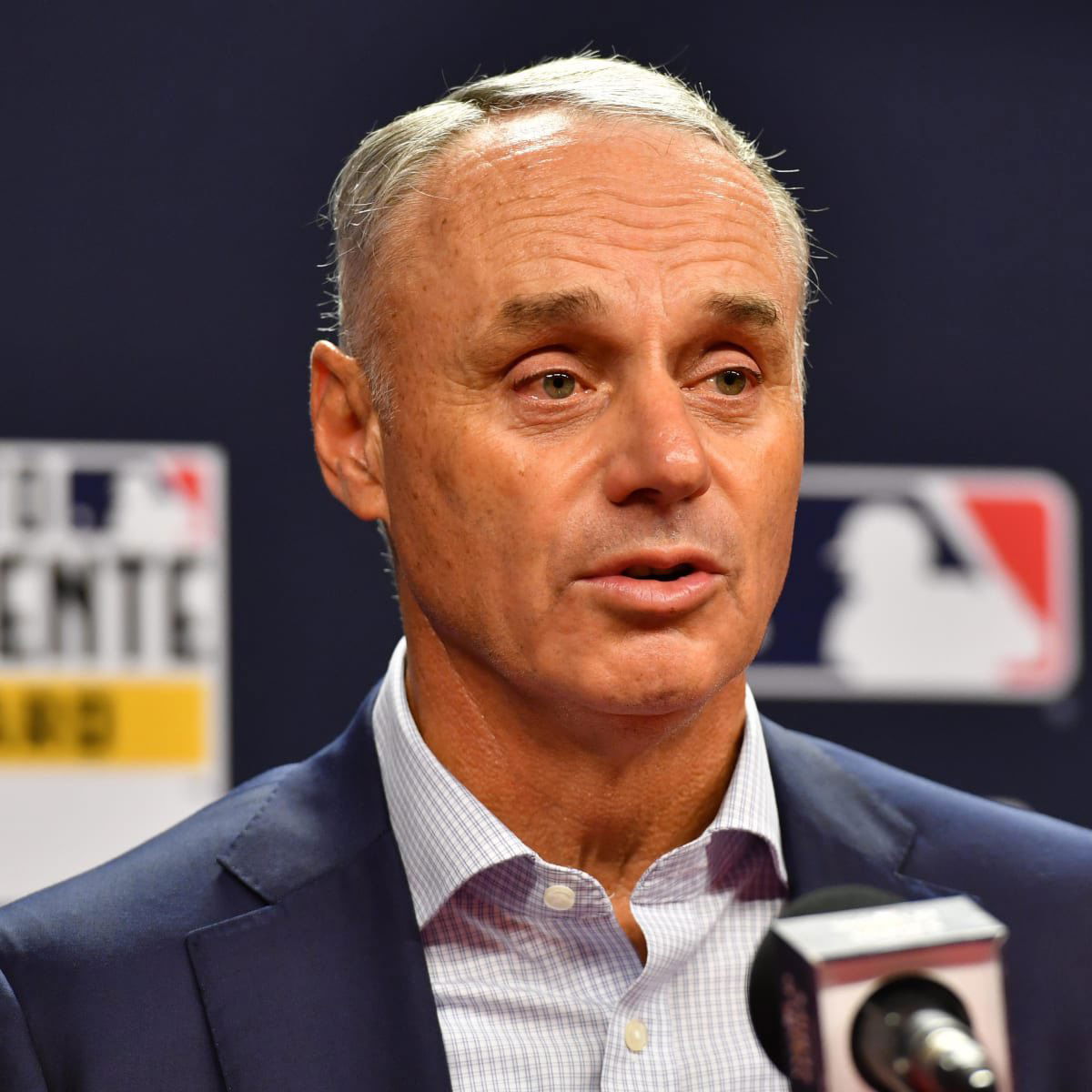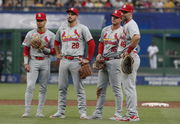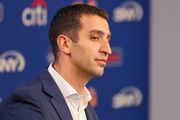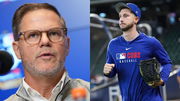

In the aftermath of the Ippei Mizuhara gambling scandal, Major League Baseball finds itself walking a tightrope. Commissioner Rob Manfred, the man tasked with safeguarding the sport’s integrity, faces a daunting challenge: combating the insidious influence of illegal betting while acknowledging the league’s limitations in doing so.
Watch What’s Trending Now!
The Mizuhara affair, with its allegations of stolen millions and illicit wagers, has exposed MLB’s vulnerability. “With respect to the situation involving the interpreter, you have to make a judgment,” Manfred said on Tuesday, speaking of MLB’s investigative approach in the Mizuhara case. “The federal investigation was so far down the road. There was such a potential for us to interfere in an unproductive way in that investigation, that we have gone slowly and deferred to, hopefully, what will be the outcome of that in fairly short order.”
This confession raises eyebrows: Is MLB, despite its Department of Investigations staffed by former Justice Department lawyers, truly equipped to police the murky world of illegal gambling?
ADVERTISEMENT
Shohei Ohtani’s full statement about Ippei Mizuhara and the gambling allegations pic.twitter.com/ENVDFFAnEp
— Talkin’ Baseball (@TalkinBaseball_) March 25, 2024
Rob Manfred’s candidness continued as he acknowledged the inherent limitations of MLB’s investigative powers. “The feds have a lot more tools than we do,” he stated plainly. “It’s just that simple.” This admission, while refreshing in its honesty, paints a picture of a league playing catch-up, relying on the heavy lifting of federal agencies to unearth the illicit activities lurking beneath the surface.
The David Fletcher saga adds another layer of complexity. Reports of Fletcher, a former teammate of Shohei Ohtani, placing bets with the same illegal bookmaker as Mizuhara have further underscored MLB’s reliance on external sources—in this case, ESPN—to expose potential violations of its gambling policy.
ADVERTISEMENT
Manfred’s explanation is stark: “The bets were not being placed in a legal betting operation. So there is no monitoring, right? We have no way to know what an illegal bookmaker is doing.” This revelation raises the question: If MLB can’t monitor illegal bookmakers, how can it effectively protect the integrity of the game?
ADVERTISEMENT
Is Rob Manfred’s reactive response a necessary evil?
Manfred emphasized, “And by definition, in most cases we’re going to be chasing, usually a press report or a criminal investigation.” This statement solidifies the reactive nature of MLB’s approach.
🚨 BREAKING NEWS 🚨 Former interpreter for baseball sensation Shohei Ohtani, Ippei Mizuhara, to plead guilty in a $17 million sports betting scandal! 😱 Mizuhara faces up to 30 years in prison for ban pic.twitter.com/6nCxSxsylt
— Dorothy Michael (@Roberksilver161) May 23, 2024
Rob Manfred’s response has been a mix of reactive measures and cautious optimism. He emphasized the league’s ongoing efforts to investigate potential wrongdoing, stating, “Some investigations begin as a result of monitoring activities that are not public, and depending on the outcome of those investigations, you may never hear about those.” But this secrecy raises its own set of concerns about transparency and accountability.
ADVERTISEMENT
While Manfred has vowed to do everything in his power to protect the integrity of the game, the reality is far more complex. MLB, it seems, is caught in a reactive dance, responding to revelations rather than proactively uncovering the truth behind the allegations. This approach, while perhaps pragmatic given the league’s limited resources, leaves it vulnerable to criticism and accusations of turning a blind eye to the ever-present threat of illegal gambling.
Top Stories
Toronto Loyalist Raises Alarm as Shocking Bo Bichette Update Puts Blue Jays’ 2026 Dreams on the Brink

Red Sox’s Alex Bregman Fallout Becomes Evident as Two MLB Rivals Ignite Fierce Bidding War, per Report

$275M Cardinals Star’s MLB Future All but Sealed as U.S. Sportscaster Asks $2.75B Team to Make Bold Move

Mets Become Leading Contender For 30YO Ex-Phillies Star after David Stearns’ Mega Offseason Misses, Per Insider

Kyle Tucker Throws Blue Jays Into Chaos as Ross Atkins Forced Into Harsh Job Cuts

The Mizuhara and Fletcher cases are not isolated incidents; they are symptoms of a larger problem. As sports betting continues to expand and evolve, MLB has to grapple with the challenges of enforcing its rules in an increasingly complex landscape. Rob Manfred’s leadership will be tested in the coming days as he navigates this ever-growing minefield. However, the question remains: Can MLB effectively combat the insidious influence of illegal gambling, or will it forever be playing catch-up, reacting to the scandals that inevitably come to light?
ADVERTISEMENT
ADVERTISEMENT
ADVERTISEMENT

